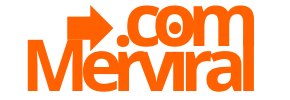Unlocking the Power of eBook Passive Income: Monetize Your Expertise
The digital age has democratized publishing, making eBook creation and sales a potent avenue for generating passive income. Leveraging your knowledge and crafting compelling eBooks can yield a consistent revenue stream, freeing you from the constraints of traditional employment. This article dissects the process, providing a comprehensive guide to transforming your expertise into profitable eBooks.
1. Identifying Your Niche and Audience: Laying the Foundation for Success
Before penning a single word, meticulous niche selection is paramount. Passion and expertise are crucial, but market demand seals the deal.
-
Brainstorming: List your areas of deep knowledge, hobbies, and professional skills. What topics do you enjoy discussing? What are you frequently asked for advice on?
-
Market Research: Validate your ideas. Utilize tools like Google Trends, Amazon’s bestseller lists, and keyword research tools (SEMrush, Ahrefs) to gauge demand and competition. Look for underserved niches with significant search volume but relatively few high-quality eBooks.
-
Audience Definition: Who are you writing for? Define your ideal reader’s demographics, interests, pain points, and information needs. A clearly defined audience allows you to tailor your content, language, and marketing efforts effectively.
-
Competitor Analysis: Analyze existing eBooks in your chosen niche. Identify their strengths and weaknesses. What are they doing well? Where can you offer a unique perspective or superior content?
2. Crafting a Compelling eBook: Content is King
High-quality content is the cornerstone of a successful eBook. Forget simply regurgitating information; provide value, solve problems, and engage your readers.
-
Planning and Outlining: A structured outline is essential. Divide your eBook into logical chapters and sections. Consider using a mind-mapping tool to visualize the flow of information.
-
Writing Style and Tone: Adopt a writing style appropriate for your target audience. Clarity, conciseness, and engaging language are key. Avoid jargon unless your audience is highly technical.
-
Content Depth and Breadth: Provide sufficient depth to satisfy your readers’ curiosity and address their needs comprehensively. Cover all relevant aspects of your chosen topic, but avoid unnecessary fluff.
-
Storytelling and Examples: Incorporate real-life examples, case studies, and personal anecdotes to illustrate your points and make your content more relatable. Storytelling can significantly enhance reader engagement.
-
Formatting and Readability: Optimize your eBook for readability. Use clear headings, subheadings, bullet points, and white space to break up large blocks of text. Choose an appropriate font size and line spacing.
3. eBook Formatting and Design: Polishing Your Product
A professionally formatted and designed eBook enhances its perceived value and increases sales.
-
Choosing the Right Software: Popular eBook formatting software includes Vellum (Mac only), Scrivener, and Calibre (free). Each offers different features and levels of control.
-
Creating a Table of Contents: A clickable table of contents is essential for navigation. Most eBook formatting software can automatically generate one based on your headings.
-
Image Optimization: Use high-quality images to illustrate your points and make your eBook visually appealing. Optimize images for web use to minimize file size and ensure fast loading.
-
Cover Design: Your eBook cover is your first impression. Invest in a professional cover design or use a tool like Canva to create a visually appealing cover that accurately reflects your eBook’s content and target audience.
-
Proofreading and Editing: Meticulously proofread and edit your eBook before publishing. Errors can damage your credibility and reduce reader satisfaction. Consider hiring a professional editor for a thorough review.
4. Self-Publishing Platforms: Reaching Your Audience
Choosing the right self-publishing platform is crucial for maximizing reach and revenue.
-
Amazon Kindle Direct Publishing (KDP): The dominant platform for eBook sales. Offers high royalty rates and access to a massive audience. Consider enrolling in KDP Select for enhanced promotional opportunities.
-
Apple Books: Another major player in the eBook market. Reaching Apple users is essential for comprehensive market penetration.
-
Kobo Writing Life: Growing in popularity, especially in international markets. Offers competitive royalty rates and marketing tools.
-
Barnes & Noble Press: Caters to Barnes & Noble’s customer base. An often-overlooked platform with potential for sales.
-
Smashwords: A distributor that can help you reach multiple retailers and libraries. Simplifies the process of publishing on various platforms.
5. Pricing Strategy: Finding the Sweet Spot
Pricing your eBook appropriately is crucial for balancing profitability and sales volume.
-
Competitor Analysis: Research the prices of similar eBooks in your niche. This provides a benchmark for your own pricing.
-
Value Perception: Price your eBook based on the value it provides to the reader. Consider the depth of information, the quality of writing, and the solutions it offers.
-
Psychological Pricing: Experiment with pricing strategies like ending your price in .99 (e.g., $4.99 instead of $5.00).
-
Promotional Pricing: Offer discounts or free promotions to attract new readers and build momentum.
-
A/B Testing: Continuously test different price points to optimize your revenue.
6. Marketing and Promotion: Driving Sales and Building an Audience
Creating a great eBook is only half the battle. Effective marketing is essential for driving sales and building a loyal audience.
-
Keyword Optimization: Use relevant keywords in your eBook title, subtitle, description, and keywords field on publishing platforms. This helps your eBook rank higher in search results.
-
Amazon Ads (KDP Ads): Utilize Amazon’s advertising platform to reach a wider audience. Target specific keywords and demographics.
-
Social Media Marketing: Promote your eBook on social media platforms relevant to your target audience. Engage with your followers and build a community.
-
Email Marketing: Build an email list and promote your eBook to subscribers. Offer exclusive content or discounts to incentivize sign-ups.
-
Guest Blogging: Write guest posts for relevant blogs and websites in your niche. Include a link to your eBook in your author bio.
-
Book Reviews: Encourage readers to leave reviews on Amazon and other platforms. Positive reviews build credibility and attract new buyers.
-
Author Website/Blog: Create a website or blog to showcase your expertise and promote your eBooks.
7. Legal Considerations: Protecting Your Work
Understanding copyright and other legal aspects is crucial for protecting your work and avoiding potential legal issues.
-
Copyright: Your eBook is automatically protected by copyright law from the moment it’s created. However, registering your copyright with the U.S. Copyright Office provides additional legal protection.
-
Fair Use: Understand the concept of fair use, which allows you to use copyrighted material under certain circumstances (e.g., for criticism, commentary, or education).
-
Plagiarism: Avoid plagiarism at all costs. Always cite your sources properly.
-
Privacy Policy: If you collect any personal information from your readers (e.g., through an email list), you’ll need to have a privacy policy in place.
8. Maintaining Your Passive Income Stream: Sustained Success
Generating passive income from eBooks requires ongoing effort and maintenance.
-
Regular Updates: Keep your eBooks up-to-date with the latest information and trends.
-
Responding to Reviews: Engage with readers by responding to reviews and addressing any concerns.
-
Promotional Activities: Continue marketing your eBooks even after the initial launch.
-
Creating New eBooks: Expand your portfolio by creating new eBooks in related niches.
-
Analyzing Data: Track your sales, marketing performance, and customer feedback. Use this data to optimize your strategy and improve your results. By meticulously following these steps, you can transform your knowledge into a sustainable and profitable passive income stream through eBooks.

